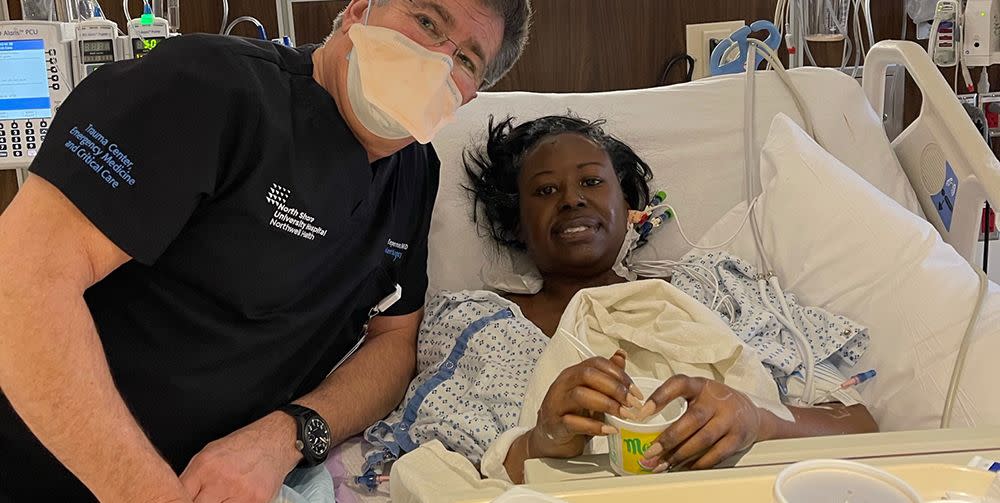This 37-Year-Old Woman Needed A Liver Transplant After Her Nose Piercing Resulted In Hepatitis

A 37-year-old New York City woman contracted hepatitis B, likely after getting a nose ring.
The illness caused her to go into liver failure and require a transplant.
She says she hopes her story will encourage others to seek care when they are sick.
A woman in New York City is recovering after suffering from liver failure that was brought on by an infection from a nose ring she got on a whim.
Dana Smith, 37, told ABC 7 that she suddenly decided to get a nose ring while she was out shopping on Thanksgiving. A few days later, she noticed that she wasn’t feeling well, but she assumed it was just due to stress and acid reflux.
But after a few weeks, she couldn’t even keep food or water down. "I was just drinking water. I couldn't hold the water down," she said. "I guess at some point I started to throw up blood."
Smith asked her sister to take her to the hospital and, because she was so sick, she has only a fuzzy recollection of what happened next. Smith said she remembers having an ultrasound and then waking up to be told by doctors that she’d had surgery—and now had a new liver.

Smith said the experience is "very overwhelming. Emotionally, everything, mentally."
Tests done in the hospital discovered that Smith had fulminant hepatitis B, a rare condition that causes immediate liver failure. Hepatitis B is a liver infection that’s caused by the hepatitis B virus, according to the Centers for Disease Control and Prevention (CDC). It’s spread when blood, semen, or other body fluids from a person infected with the virus enters the body of someone who is not infected through things like sexual contact and sharing needles.
Not everyone who has hepatitis B develops symptoms, but people who do can experience them can suffer from fatigue, lack of appetite, stomach pain, nausea, and jaundice.
Fulminant hepatitis B can come on within eight weeks of getting hepatitis, and can lead to coma and even death if it’s not treated in time.
Doctors suspected that Smith’s nose ring was to blame after they removed her mask and spotted it. "This was the one unique change that had taken place in her life, this nose ring,” her doctor, Lewis Teperman, told ABC 7. "And it's the perfect time for the virus to incubate."
Smith was placed in a medically induced coma after she was diagnosed and was put on the transplant list. She had a match within two days, and received a new liver soon after.
Smith, who has not been able to go back to work yet, says she hopes her story will encourage other people to seek care when they’re sick—even during the pandemic.
You Might Also Like

